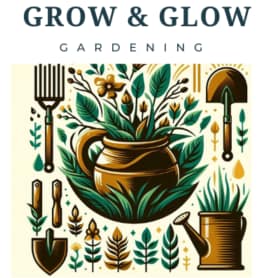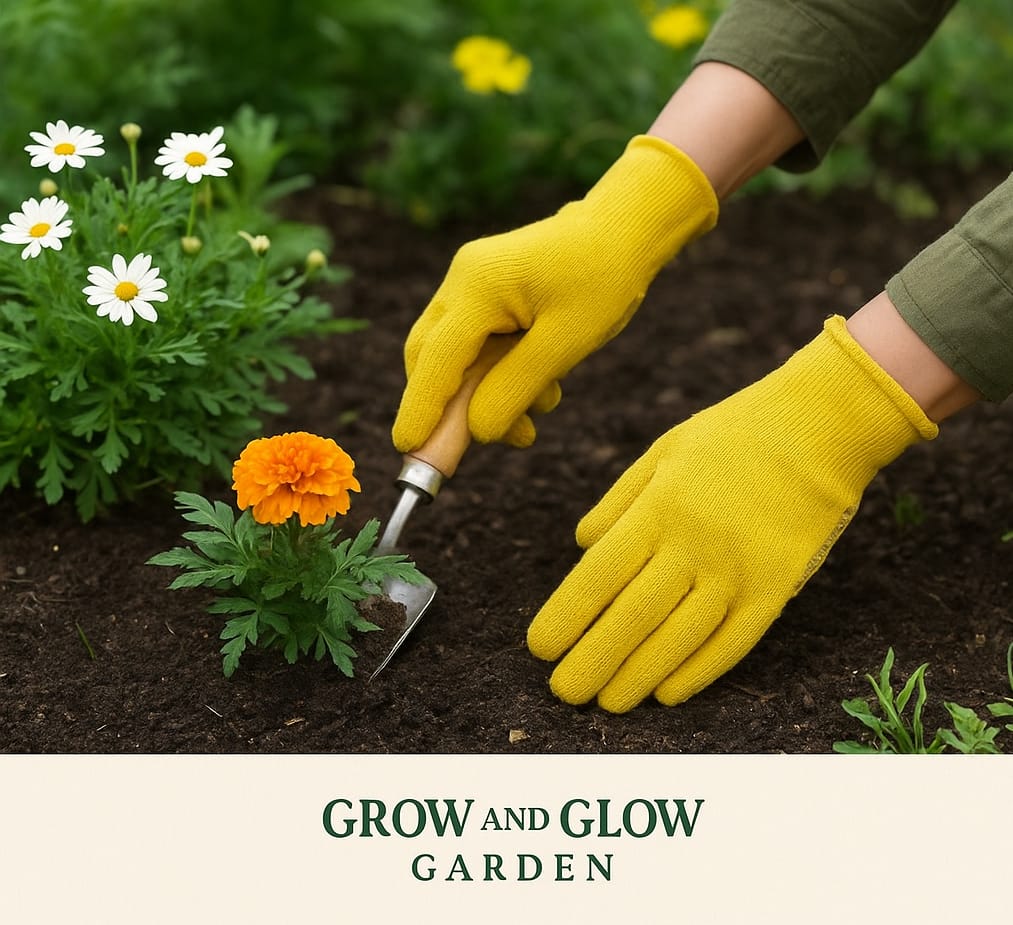Gardening is more than just planting seeds—it’s about nurturing growth, maintaining balance, and creating a thriving outdoor (or indoor) space. Whether you’re just starting your first flower bed or you’re an experienced gardener with years of practice, proper garden maintenance is the key to success.
At Grow and Glow Garden, we believe gardening is a lifelong learning journey. That’s why we’ve gathered essential gardening maintenance tips for both beginners and advanced gardeners—so you can keep your green space glowing all year long.
🌱 Gardening Maintenance Tips for Beginners
If you’re new to gardening, don’t worry! Start small, stay consistent, and build good habits.
1. Start with Easy-to-Grow Plants
Herbs like basil, mint, and parsley or flowers such as marigolds and zinnias are beginner-friendly. They’re low-maintenance and give quick results, keeping motivation high. For a deeper dive, check out our Best easy to grow plants for beginners.
2. Learn the Basics of Watering
Overwatering is one of the most common mistakes. Most plants prefer deep, less frequent watering rather than a daily sprinkle. Always check the soil—if the top inch feels dry, it’s time to water.
3. Get to Know Your Soil
Healthy soil = healthy plants. Mix in compost or organic matter. Beginners can use quality potting mix to simplify the process. Learn more in our Organic Composting at Home guide.
4. Control Weeds Early
Weeds compete for nutrients and water. A quick 10-minute weeding session every week prevents them from taking over. Mulch around plants to suppress weeds and retain moisture.
5. Practice Regular Pruning
Dead leaves and faded blooms don’t just look messy—they can attract pests. Snip them off regularly to encourage new growth.
🌿 Gardening Maintenance Tips for Advanced Gardeners
If you’ve been gardening for a while, fine-tune your methods and take your garden to the next level.
1. Implement Crop Rotation
Avoid planting the same type of vegetables in the same soil year after year. Rotating crops improves soil health and reduces pest and disease issues.
2. Master Seasonal Care
- Spring: Fertilize and start seedlings.
- Summer: Focus on watering and pest control.
- Fall: Harvest and prepare soil with compost.
- Winter: Protect perennials and plan next year’s layout. See our Spring Garden Prep Checklist.
3. Encourage Beneficial Insects
Ladybugs, bees, and lacewings help pollinate and control pests. Plant flowers like lavender, dill, or sunflowers to attract them.
4. Experiment with Companion Planting
Some plants grow better together. Tomatoes pair well with basil, while carrots benefit from onions. Companion planting can maximize yields and deter pests naturally.
5. Use Smart Irrigation Systems
Upgrade from hand watering to drip irrigation or soaker hoses. These systems save time, conserve water, and deliver moisture directly to plant roots.
🌸 Final Thoughts
Garden maintenance is a blend of patience, consistency, and learning. Whether you’re a beginner pulling your first weed or an experienced grower fine-tuning irrigation, the joy of gardening lies in the process.
We’d love to hear from you! What’s your favorite gardening maintenance tip? Share your thoughts in the comments below and let’s grow together.

